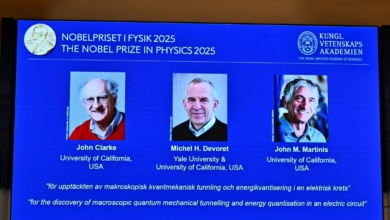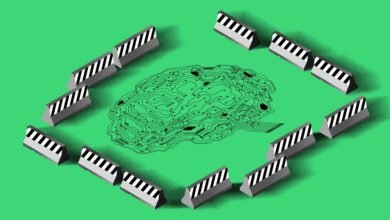Nobel Prize Honors Pioneers of Quantum Computing

▼ Summary
– Three physicists received the 2025 Nobel Prize in Physics for their 1980s work on quantum mechanics.
– John Clarke, Michel Devoret, and John Martinis demonstrated quantum tunneling through a circuit with no electrical resistance.
– Their experiments proved tunneling in a physical circuit, leading to modern transistors and quantum computing.
– Clarke noted that technologies like cell phones rely on this work and expressed surprise at winning the award.
– Martinis and Devoret have contributed to quantum computing at Google, with Martinis previously achieving a quantum supremacy milestone.
The 2025 Nobel Prize in Physics has been awarded to three scientists whose foundational research into quantum mechanics paved the way for today’s advanced electronics and the emerging field of quantum computing. John Clarke, Michel Devoret, and John Martinis received this prestigious honor for their groundbreaking experiments in the 1980s that demonstrated quantum tunneling within a physical circuit. Before their work, the idea that atoms and subatomic particles could pass through solid barriers was purely theoretical. By constructing a circuit with zero electrical resistance, they provided the first tangible proof of this phenomenon, which later became essential for developing modern transistors and the earliest quantum computers.
During a phone interview from the Nobel ceremony, Clarke expressed his astonishment at the recognition. He noted that the technology enabling their conversation, cell phones, relies directly on the principles his team uncovered. Clarke headed the research group at the University of California, Berkeley, where he started as a professor in 1969 and continues as an emeritus professor today. Over many years, the collective efforts of these three physicists established the core principles that support contemporary quantum computing systems.
Both Martinis and Devoret have been deeply involved in quantum computing research at Google. In 2019, Martinis, who was then the hardware lead for Google’s Quantum AI team, collaborated on a project that achieved what they termed “quantum supremacy.” Their quantum processor solved a specific problem vastly quicker than the world’s most powerful supercomputer. Although Martinis has since moved on from his position at Google, he maintains professorships at Yale University and the University of California, Santa Barbara. Devoret continues as the chief scientist for quantum hardware at Google Quantum AI and also teaches at the University of California, Santa Barbara.
By receiving the Nobel Prize, Clarke, Devoret, and Martinis join an exclusive circle of distinguished physicists, including Max Planck, honored in 1918, and Albert Einstein, who won in 1921. Their contributions not only confirmed a pivotal quantum effect but also initiated the technological progress that fuels countless modern devices and promises to revolutionize computing in the years ahead.
(Source: The Verge)





